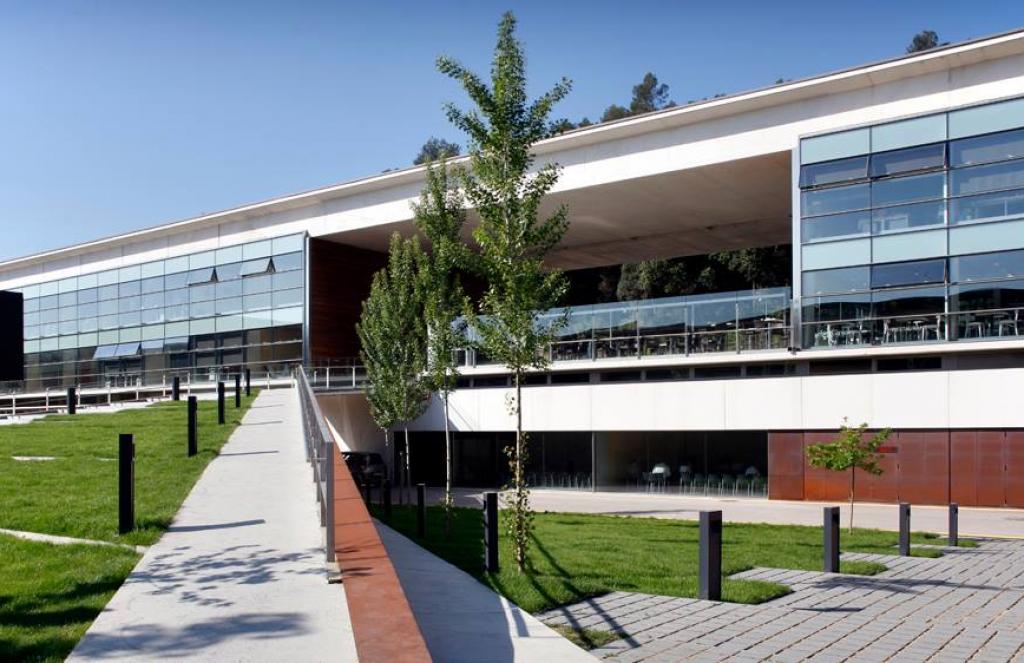Thessaloniki gets ready for its metro launch in November
The underground rapid transit lines have been under construction for almost two decades due to various project delays
 TheMayor.EU logo
TheMayor.EU logo 
The Scientific Park of Girona University where the prototype plant is located, Source: Parc UdG Facebook page
This makes it the first of its kind in the world
The first fully automated bioelectrochemical pilot plant for carbon-neutral production from carbon dioxide (CO2) is already operational in the Spanish city of Girona. The plant is a pilot project (BioRECO2VER) located in the Science Park of the University of Girona, after winning a public tender held in 2021.
CO2 emissions mostly end up in the atmosphere where they progressively contribute to the raising of the Earth’s temperature due to the greenhouse effect. Most of us, however, also know that CO2 is an important source for the photosynthesis of plants. It turns out that bacteria can also be employed in the conversion and transformation of that gas into usable industrial products, such as lactate and isobutene.
To this end, a hybrid enzymatic process will be investigated for CO2 capture from industrial point sources and conversion of captured CO2 into the targeted end-products will be realized through three different proprietary microbial platforms which are representative of a much wider range of products and applications.
Bioprocess development and optimization will occur along two lines: fermentation and bio-electrochemical systems. The process itself, however, has been described as non-photosynthetic.
The project goal is to create alternative processes for commercial-scale production of platform chemicals in a more sustainable way starting from industrial emissions of CO2. However, there is still a need to overcome some technical and economic barriers, from which biotechnological processes for CO2 conversion suffer.
To name a few: gas pretreatment costs are still too high, gas transfer in the bioreactors is suboptimal, product recovery costs are still too elevated, and the scalability has not sufficiently been proven. The creation of the plant is the way forward to showing that these challenges can be solved and the whole process can be scaled up successfully.

The underground rapid transit lines have been under construction for almost two decades due to various project delays

Now you can get your wine in Talence by paying directly in Bitcoin

That’s because the state has to spend money on updating the railway infrastructure rather than subsidizing the cost of the popular pass

Rethinking renewable energy sources for the urban landscape

The examples, compiled by Beyond Fossil Fuels, can inform and inspire communities and entrepreneurs that still feel trepidation at the prospect of energy transition

Now you can get your wine in Talence by paying directly in Bitcoin

The 10th European Conference on Sustainable Cities and Towns (ESCT) sets the stage for stronger cooperation between the EU, national and local level to fast track Europe's transition to climate neutrality.

At least, that’s the promise made by the mayor of Paris, Anne Hidalgo

The underground rapid transit lines have been under construction for almost two decades due to various project delays

At least, that’s the promise made by the mayor of Paris, Anne Hidalgo

Hostal de Pinós is located in the geographical centre of the autonomous region

Despite its church-y name, the district has long been known as the hangout spot for the artsy crowds

Urban dwellers across the EU are having a say in making their surroundings friendlier to people and the environment.

Forests in the EU can help green the European construction industry and bolster a continent-wide push for architectural improvements.

Apply by 10 November and do your part for the transformation of European public spaces

An interview with the Mayor of a Polish city that seeks to reinvent itself

An interview with the newly elected ICLEI President and Mayor of Malmö

A conversation with the Mayor of Lisbon about the spirit and dimensions of innovation present in the Portuguese capital














